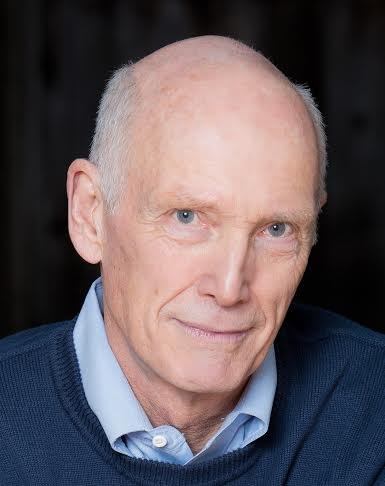Pompous, partisan, and pernicious. Those are the three words that come to mind as I flick through cable news these day. And I do mean flick. I can’t bear the grating on my ears for more than a few seconds. The sound destroys the substance.
I have a friend who left journalism several years ago because he was tired of the emerging trend towards leading with violence - “If it bleeds, it leads.” I suspect he would be equally offended by the current trend – “If it blares, it leads.”
When I do manage to endure the sound long enough to hear the substance, I often find the views pompous, partisan, and pernicious. They are based on callous self-interest. They advocate for divisive ideologies. And they destroy communal wellbeing.
With this kind of cultural cacophony blaring in our ears, how can we find the space and the determination to recover the art of dialogue as a foundational means of living well together? And is there something more at work in civil conversation that might be worth noticing?
Let’s begin by thinking about spaces. Everything we do happens in spaces. And precisely because of that, we tend to take them for granted. But if we are going to convene constructive conversations about what matters most, we need to pay more attention to the environment in which those conversations happen and how that environment can be designed to foster respectful dialogue.
Here’s a possibility to consider.

Set things up in a circle. Maybe there’s a table, maybe not. This tends to put everyone in a equal position, without someone at the front of the room or the head of the table. It also means that the group size is limited to 3-6, so everyone has a chance to contribute, if they wish. If the group is larger, set out more circles. Imagine the kind of welcoming and respectful space you would curate for good friends coming over for dinner.
Let’s now think about substance. What’s the purpose of the conversations? If it’s simply to provide space for a clash of opinions, don’t even bother. If it’s to foster mutual understanding and learning that will strengthen the common good, then do everything in your powers to make it happen, and often.
Initiate the conversation with an open question, simply worded and focused on mutual benefit. Questions open up possibilities. They invite people to imagine things differently. They surface ideas that have not occurred to participants before. They expand and enrich our understandings. They refine and reform our neural pathways. They connect us in a common curiosity. They create community where everyone can contribute and benefit.
Some of the best considerations of dialogue in the last century were done by those whose peoples’ voices were disparaged and denied. Remember Martin Buber’s people in Nazi Germany, Martin Luther King Jr’s in the segregationist United States, and Nelson Mandela’s in apartheid South Africa. Buber once wrote, “When two people relate to each other authentically and humanly, God is the electricity that surges between them.” King once wrote, “Every [person] must decide whether [they] will walk in the light of creative altruism or in the darkness of destructive selfishness.” And Mandela once wrote, “What counts in life is not the mere fact that we have lived. It is the difference we have made to the lives of others that will determine the significance of the life we lead.”
Buber’s image of the surges of divine electricity connecting people changes the way I see dialogue. Maybe we’d be better off if we imagine every conversation as a ‘trialogue’, with God, however we may imagine that mystery currently, as a dynamic third party in every conversation, as the energy guiding our thoughts and words into a positive and constructive encounter.
Can you imagine creating a space, physically and spiritually, for these kinds of conversations. You’re probably doing it already in some of your circles of influence, but can you amp up the number of those conversations, or the focus that they have, or the impact they might have? Somehow, I suspect you can. I know I can. And it is good to know that together we are seeing anew the energy of God in our conversations.
(Image attribution = https://commons.wikimedia.org/wiki/File%3AFigures_in_conversation.jpeg)
 Brian Fraser is lead provocateur of Jazzthink and minister with Brentwood Presbyterian Church in Burnaby, BC. He works primarily with not-for-profit staffs and boards convening COOL conversations for SMARTer leadership. You can find out more at www.jazzthink.com and www.brentwoodpc.ca
Brian Fraser is lead provocateur of Jazzthink and minister with Brentwood Presbyterian Church in Burnaby, BC. He works primarily with not-for-profit staffs and boards convening COOL conversations for SMARTer leadership. You can find out more at www.jazzthink.com and www.brentwoodpc.ca
You can read more articles on our interfaith blog, The Spiritual View, HERE


